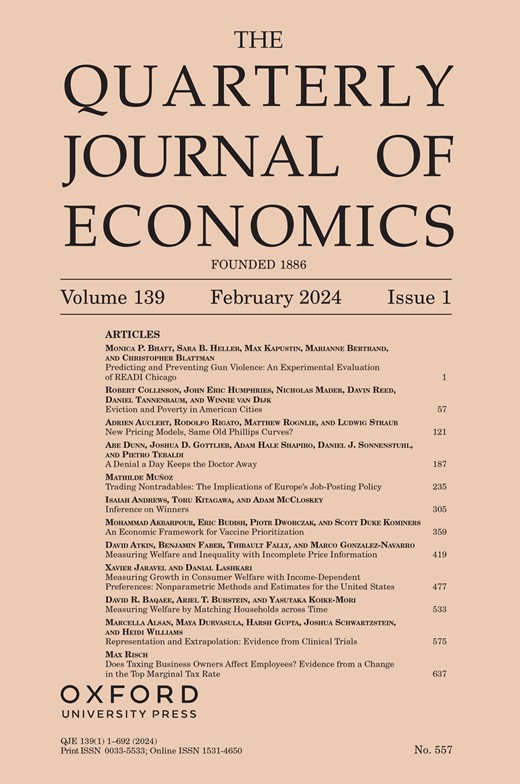过度模仿是不合理的,也是有害的
IF 12.7
1区 经济学
Q1 ECONOMICS
引用次数: 93
摘要
理性导致人们模仿那些品味相似但信息不同的人。但模仿共同来源的人会形成相关的信念,理性要求后来的社会学习者考虑到这种冗余。这意味着对理性模仿的严格限制。我们表明(i)在大多数自然观察结构中,除了典型的单文件情况,充分理性决定了人们必须“反模仿”他们观察到的一些;(ii)在每个观察结构中,充分理性决定了不反模仿的人本质上最多只能模仿共享共同信息的前辈中的一个人。我们还表明,在一个非常广泛的环境中,几乎任何学习规则,如果人们经常模仿不止一个人,而不反对模仿其他人,都会导致人们倾向于自信和错误的长期信念的积极(在某些环境中,这是任意高的)可能性。在测试社会学习的合理性或效率时,研究人员不应该关注人们是否遵循他人的行为,而应该关注他们是否过度遵循他人的行为。本文章由计算机程序翻译,如有差异,请以英文原文为准。
Extensive Imitation is Irrational and Harmful
Rationality leads people to imitate those with similar tastes but different information. But people who imitate common sources develop correlated beliefs, and rationality demands that later social learners take this redundancy into account. This implies severe limits to rational imitation. We show that (i) in most natural observation structures besides the canonical single-file case, full rationality dictates that people must \anti-imitate" some of those they observe; and (ii) in every observation structure full rationality dictates that people who do not anti-imitate can, in essence, imitate at most one person among predecessors who share common information. We also show that in a very broad class of settings, virtually any learning rule in which people regularly do imitate more than one person without anti-imitating others will lead to a positive (and, in some environments, arbitrarily high) probability of people converging to confident and wrong long-run beliefs. When testing either the rationality or the efficiency of social learning, researchers should not focus on whether people follow others' behaviour but instead whether they follow it too much.
求助全文
通过发布文献求助,成功后即可免费获取论文全文。
去求助
来源期刊

Quarterly Journal of Economics
ECONOMICS-
CiteScore
24.20
自引率
2.20%
发文量
42
期刊介绍:
The Quarterly Journal of Economics stands as the oldest professional journal of economics in the English language. Published under the editorial guidance of Harvard University's Department of Economics, it comprehensively covers all aspects of the field. Esteemed by professional and academic economists as well as students worldwide, QJE holds unparalleled value in the economic discourse.
 求助内容:
求助内容: 应助结果提醒方式:
应助结果提醒方式:


